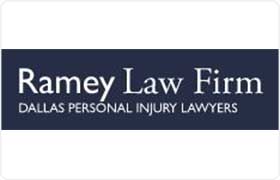Bedford RICO Act Lawyer, Texas
Sponsored Law Firm
-
 x
x

Click For More Info:
-
Ramey Law Firm
3890 West Northwest Hwy Suite 650 Dallas, TX 75220» view mapAccident & Injury Law Personalized Legal Representation
he Ramey Law Firm of Dallas, Texas specializes in handling personal injury cases.
972-437-5577
Not enough matches for Bedford RICO Act lawyer.
Below are all Bedford Criminal lawyers.
Phillip W. Galyen
Accident & Injury, Divorce & Family Law, Criminal, Immigration
The law firm of Bailey & Galyen is one of the largest "consumer law firms" in the state of Texas with over 30 attorneys and 13 offices throughout Texa... (more)
FREE CONSULTATION
CONTACTJoan Durkin
Wills & Probate, Workers' Compensation, Criminal, Wrongful Death, Car Accident
Status: In Good Standing Licensed: 35 Years
L. Drake Dunnavent
Education, Real Estate, Wills & Probate, Criminal
Status: In Good Standing Licensed: 28 Years
FREE CONSULTATION
CONTACTJ. C. Bailey III
Bankruptcy & Debt, Criminal, Divorce & Family Law, Accident & Injury, Workers' Compensation
Status: In Good Standing
FREE CONSULTATION
CONTACTWalt Allen Cleveland
Food & Drug Administration, Sex Discrimination, Juvenile Law, Criminal
Status: In Good Standing
Leigh Warren Davis
State Appellate Practice, White Collar Crime, DUI-DWI, Criminal
Status: In Good Standing Licensed: 24 Years
 Hardin Ramey Dallas, TX
Hardin Ramey Dallas, TX



